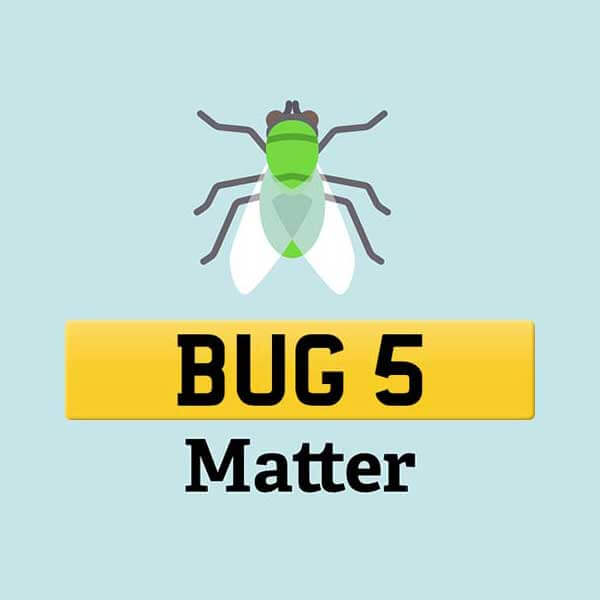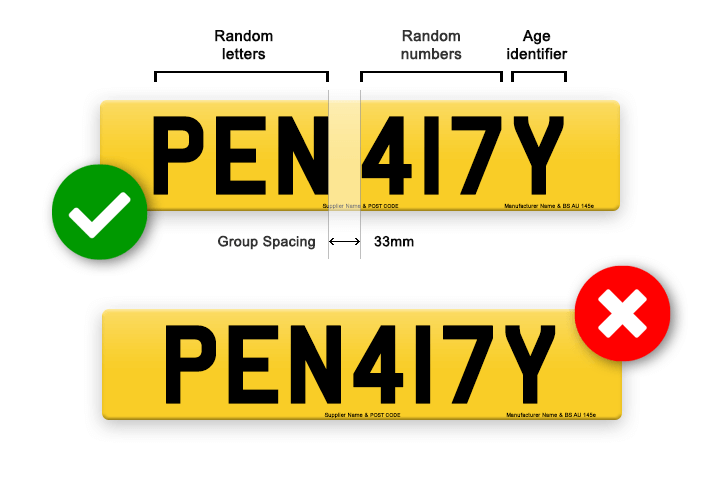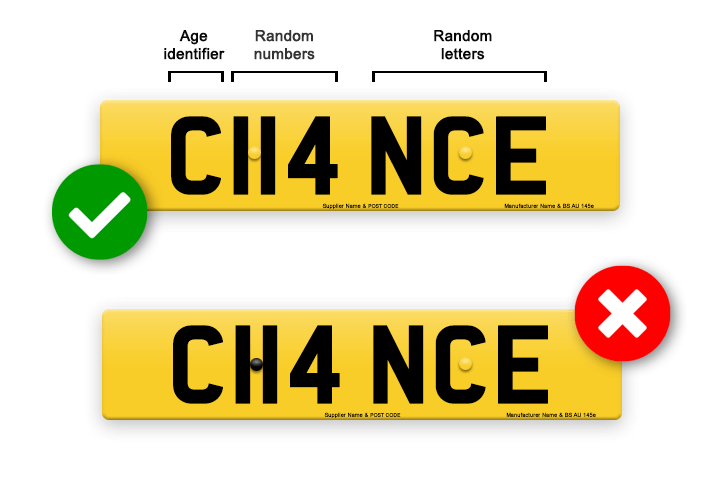
As a responsible motorist, it's crucial to understand and follow the laws surrounding the display of UK vehicle registration plates.
Keep it clean
Registration plates must be displayed clearly and legibly at all times, and this includes keeping them free of mud, dirt and any other obstructions. It's actually a significant safety measure which will make it easier to read your registration and identify your vehicle in case of an emergency.
Maintaining clean number plates is a legal requirement in the UK, and failure to do so can result in a fine. Therefore, it's important to make sure that you clean your number plates regularly, especially during the winter months when they can become dirty more quickly due to salt and other debris on the roads.

Bugs matter!
A Buglife campaign
But, don't rush out and clean your plates just yet. Before you do, please take a look at our blog post about the Buglife ‘Bugs Matter’ campaign to prevent the extinction of the UK's 40,000 species of invertebrates.
The letter (and numbers) of the law
The British Standard BS AU 145e specifies the exact rules governing the plate size, construction, lettering and spacing. There must be the correct space between the two groups of characters:

The plates must include the BS standard mark and the supplier’s name and postcode. Approved decorative borders and a national flag or emblem are allowed, but no other characters or ornaments are permitted.
Don’t take a chance!
The plastic bolt covers often supplied in acrylic plate fixing kits can only be used on the appropriate face, i.e. white on the front and yellow on the back. This is to ensure they do not compromise adjacent characters.
Some people really push their luck by using the wrong colour bolt covers to obfuscate the characters. This is strictly illegal:

Always buy your acrylic plates from a registered supplier. When you purchase your new registration from Regtransfers, we can supply fully-compliant items as part of your purchase.
If you're caught misspacing or modifying your registration plates, you may face fines and penalties. In some cases, your vehicle may even be impounded until the matter is resolved. It's important to take the rules seriously and ensure that your plates are always compliant.
